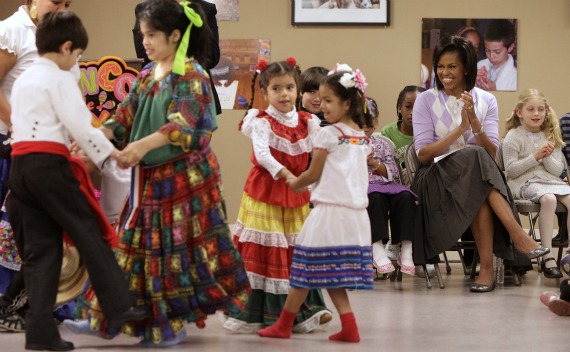Can the GOP Win the Latino Vote – and Does It Matter?
More on:

At last week’s Republican presidential debate a member of the audience provocatively reminded the candidates that not all of the Latinos in the United States are illegal, and then asked them, “What is the message from you guys to our Latino community?” Nearly everyone on stage dodged the question, saying that they didn’t have a specific message for Hispanic voters because “they want virtually exactly what everyone else wants” such as a healthy economy and access to affordable health insurance. That may be true, but the exchange raises the broader issue of whether the Republicans can connect with the growing number of American citizens with links back to Latin America.
Finding a good answer to this question is more important than ever. Some 50.5 million people – or one in six Americans – fall under this moniker. In every single state of the union, the Latino population grew over the past decade – including in swing states such Florida, Iowa, Virginia, Georgia and North Carolina.
What the presidential frontrunners have done quite vocally is attack one another for “soft” immigration stances and lashed out against “illegals”. Herman Cain ratcheted up the rhetoric to an all time high, suggesting electrifying the border fence and killing anyone who tried to cross into the United States from Mexico. A wave of harsh immigration laws – requiring police to check the immigration status of anyone they suspect is undocumented, punishing landlords that rent to those without papers, and even checking immigration status at schools -- have passed in states including Arizona, Georgia, and Alabama. With the economy in the doldrums and unemployment near historic highs, blaming illegal immigrants for many of America’s ills has gained traction, particularly within the Republican Party. Though technically not directed at U.S. Latinos, many feel the rising hostility targets them all the same.
While it may be awhile until the full economic effects of these laws are clear (a recent study by the Council of the Americas suggests that the restrictive laws hurt rather than help local employment), the political impact is more immediate. How the polarization will play out in the primaries –will it further energize a strongly anti-immigrant conservative base, or mobilize Latino and other pro-immigrant groups (along the lines of the coalition that defeated an English-only bill in Nashville, Tennessee in 2009) – remains to be seen. But in the general national election, it is hard to imagine how it helps its proponents.
At the Western Republican Leadership Conference/CNN debate Rick Santorum was the only Republican presidential candidate who seemed to recognize what other prominent party leaders (such as Karl Rove and Jeb Bush) have been saying now for awhile: the Republicans cannot afford to alienate this huge and growing demographic. They also don’t have to. The Republican Party has the opportunity to connect with Latinos on a number of issues, including family values, faith-based views, and an emphasis on entrepreneurship and small businesses. But if Rick Santorum is the only Republican hopeful that understands the importance of reaching out to Latinos, then the party is in trouble. President Obama won a whopping 67 percent of the Latino vote in 2008, and preliminary counts suggest that this demographic will only be more important this time around. History suggests that minorities, while often punching below their electoral weight, tend to turn out for national presidential (as opposed to midterm) elections. In 2012, they will represent over a third of the voting age population -- an all time high. To compete, the Republicans have to come up with a better answer, or they risk losing America’s fastest growing electorate.
More on:
 Online Store
Online Store
